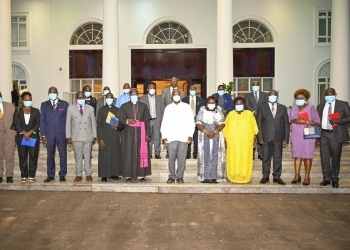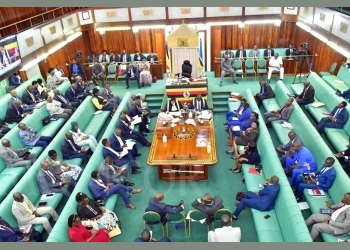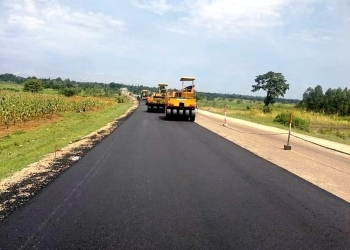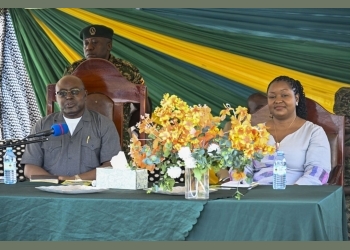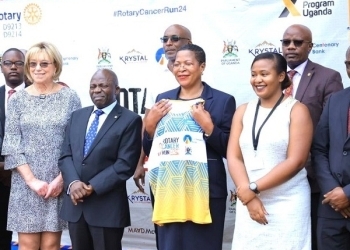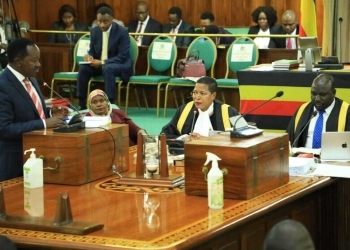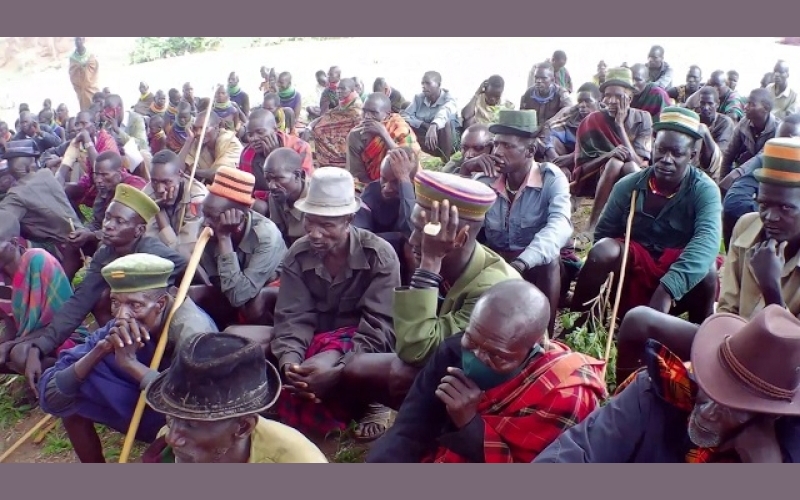
Elders in Karamoja sub-region have committed to transforming the cultural norms that undermine the rights of women and girls in society.
On Wednesday, March 8th, 2023, districts in the Karamoja sub-region joined the rest of the country to celebrate International Women’s Day. The national celebrations took place at Kaaro secondary school in Kiruhura district under the theme ‘’DigitAll Innovation and technology for gender equality."
The bad traditional norms include the use of a hot iron bar to brand the private parts of a woman for declining to marry a man selected by the elders, the communal punishment locally known as ‘’Ameto’’ who disrespects the husband, forceful marriage, and inheritance among others.
The elders say that they have banned all these bad practices and anyone found violating women’s rights in any form shall pay a fine of 60 cows, according to their bylaws. John Bosco Akore, the secretary for Kotido Elders Council, says that the elders have eliminated all the bad cultures that violate the rights of women, and formulated bylaws to protect women against any harm.
Akore said in the Karimojong culture, women are not supposed to own land, or resources or sell any property in the house for their substance, something they have seen as humiliating to their wives. ‘’We want to abolish the mindset that makes men think that a woman who is married with cows automatically becomes a man’s property that can be treated in any way that impresses him. This is not fair,’’ Akore said.
He noted that initially, women were not allowed to be part of the elder's meetings and to speak on the matters affecting them but they are realizing that women contribute a lot to the development of the family. Akore noted that women often bear the responsibilities in the family such as building houses, cooking, collecting firewood, and taking care of children while the men are away from home looking after cattle.
Mary Nate, a mother of seven children in Kotido district, said men have always been brought up with the mentality of abandoning their family responsibilities for women.
Nate said discrimination against women is still common in rural communities because men are immersed in their bad cultural practices.
Magdalena Adiaka, a resident of Iriiri Sub County in Napak district observed that there have been some changes among men as they can now work together for the development of their families. Adiaka said that at least their men can go to the garden and cultivate compared to the old days when they used to sleep under the trees waiting for food to be served by their wives.
Thomas Odelok, the Executive Director for Karamoja Women’s Umbrella Organization- KAWUO noted that they have realized some change among the women in the region as they can now participate in decision-making. Odelok observed that although there is some progress, cultural norms still remain a challenge and KAWUO is engaging cultural and church leaders in amplifying the voices of young women and girls.
He said they are also encouraging women to have a strong voice in their communities and see themselves as change-makers who can actively participate in the decision-making.
